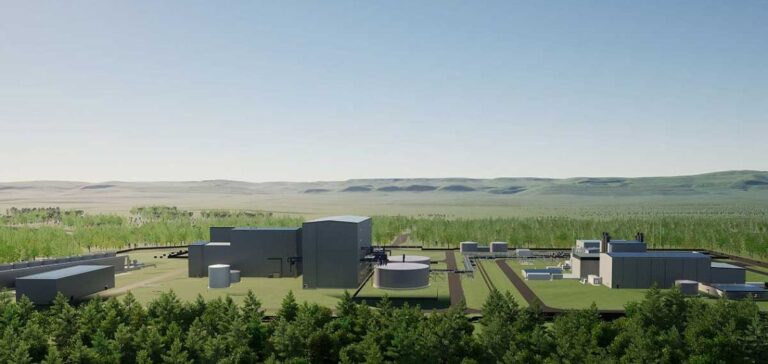TerraPower, a company specialising in nuclear innovation, announced on April 16, 2025, that it has officially sent a letter to the UK Department for Energy Security and Net Zero (DESNZ). This marks the beginning of the process to submit the Natrium reactor for regulatory evaluation in the UK under the Generic Design Assessment (GDA) procedure. This process is the first step to gaining approval for the Natrium technology and enabling its deployment in the international market.
Chris Levesque, President and CEO of TerraPower, expressed his excitement about the initiation of the licensing process for the Natrium reactor in the UK, emphasising the importance of ongoing discussions with the UK government and energy stakeholders. “There is significant interest and opportunity for cooperation between the United States and the United Kingdom in deploying advanced nuclear plants over the next decade,” he said.
The UK’s GDA process will build on TerraPower’s regulatory experiences, including its ongoing Natrium reactor project in the United States. These experiences include pre-application meetings with the U.S. Nuclear Regulatory Commission (NRC), the acceptance of the construction permit application (CPA), and in-depth reviews of technical documents by the NRC, which has recently announced that it is ahead of schedule in its review.
The Natrium reactor is a sodium-cooled fast reactor with a molten salt-based energy storage system, capable of producing up to 500 MWe for more than five hours thanks to an innovative storage technology. This capability enables better integration with renewable energy and a faster decarbonisation of the power grid. The first Natrium project is currently under construction in the state of Wyoming, USA, after breaking ground in 2024.
International ambitions for the Natrium technology
The United Kingdom faces an increasing need for reliable and decarbonised energy solutions as it seeks to meet its energy demand. In this context, innovative technologies such as TerraPower’s, offering baseload power with gigawatt-scale storage, are seen as essential to achieving decarbonisation goals while ensuring a stable energy supply.
The submission of the GDA application in the UK marks a crucial step for TerraPower, which seeks to strengthen its position in the global advanced nuclear energy sector. As discussions continue with UK regulators and stakeholders, the company is focused on the success of this process to accelerate the international deployment of the Natrium reactor.
A model of international cooperation in nuclear energy
TerraPower is relying on a collaborative approach to accelerate the development of Natrium technology worldwide. The company plans to leverage its experience gained in the United States to facilitate regulatory processes and establish deployment timelines for Natrium reactor installations in the UK and beyond. These efforts align with a broader vision of collaboration between the United Kingdom and the United States to promote advanced nuclear solutions globally.






















